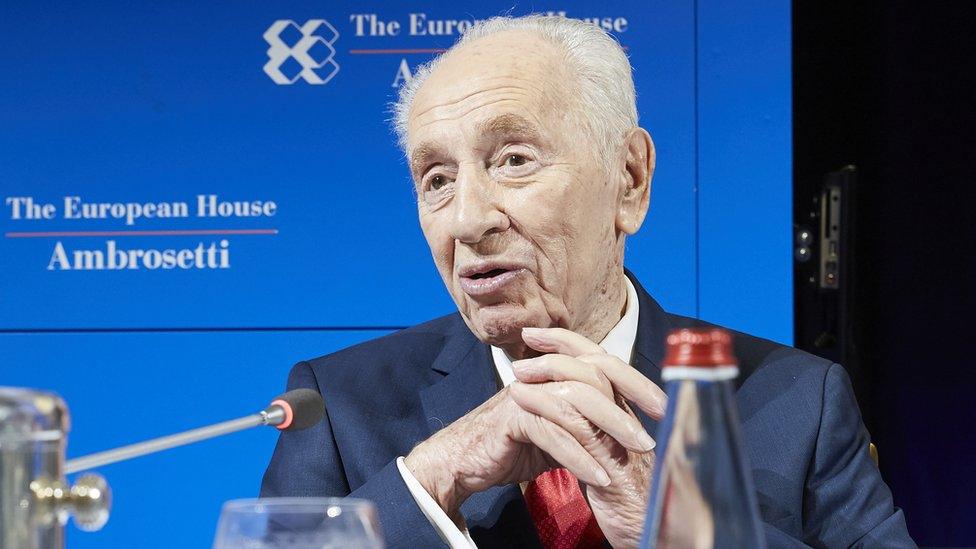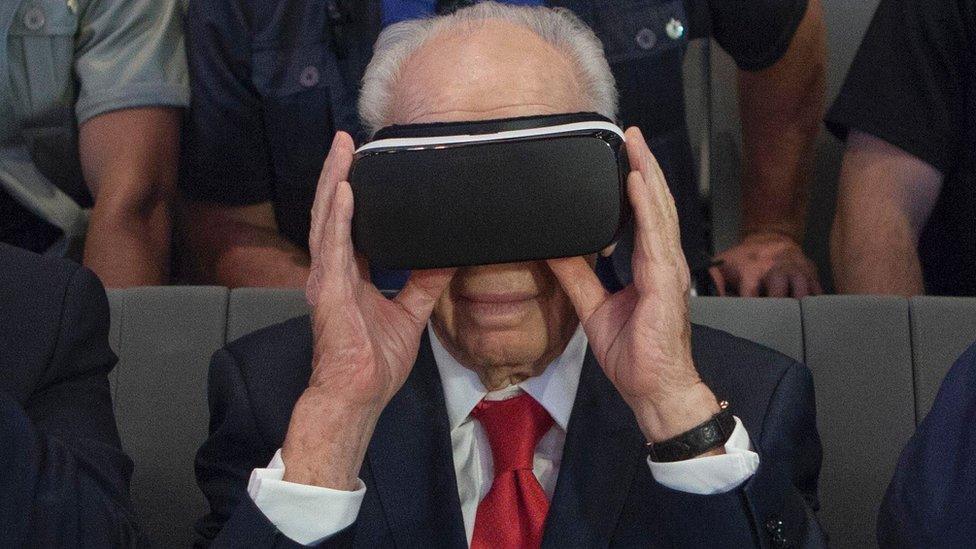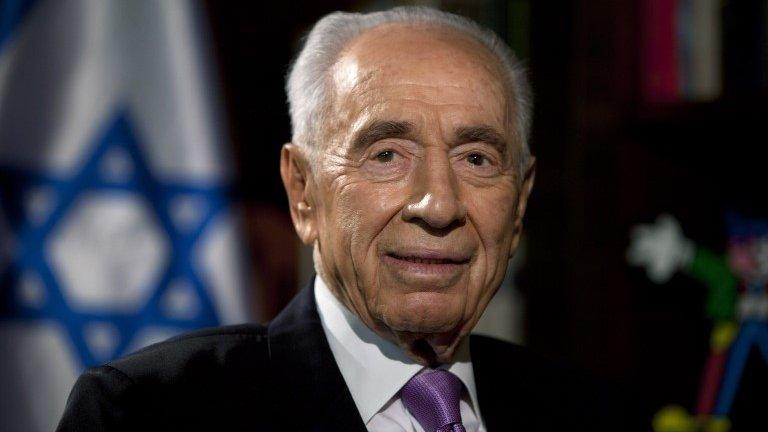Shimon Peres: The Nobel Peace Prize winner's final speech
- Published

Shimon Peres said the prospect of equal rights was "a little bit strange"
Two weeks before his death, Shimon Peres gave a speech outlining his vision for the Middle East and shared an optimistic view of Europe.
Here are some of the highlights from the Nobel Peace Prize winner's final public appearance.
Europe, stop complaining
Despite concerns that the European Union could fracture and break up following Britain's vote to leave and while Europe faces intense pressure from an unprecedented migration crisis, Peres urged those with "very pessimistic" attitudes to look on the bright side.
"I want to remind my European friends that until 70 years ago there were wars in Europe. The First and the Second. The cost of these wars was terrible. Millions and millions of people," he said.
"Europe stopped fighting 70 years ago. Why are you complaining? Even the poorest person has electricity, has flowing water, has better food."
He added that this was "just the beginning" for progress in Europe.
From desert to leading exporter

Peres praised Israel's leading technology sector and innovative projects
Peres, who has been a leading figure on Israel's political landscape since the Jewish state was established in 1948, praised the nation's transformation with its thriving technology sector.
He described a country whose agriculture was "95% high tech and 5% water" and commended those of the Jewish faith who, after relocating to a land devoid of natural resources, discovered a way to produce exports that were in high demand.
"Every lady and every man possesses treasures of talent, of knowledge. Israel is not a country that was built by land or resources, it's a land that was built by people - their initiative, innovation."
Describing Israel's tech scene, he added: "This artificial agriculture provided us with yields 15 times higher than in any other country. We became rich because we had nothing."
'You want more territory - war'
The Nobel Peace Prize winner said he did not believe wars occur "because we are bad people", but that "we become bad people because we have wars".
He said governments are now dependent on defence and security and this affects the character of world leaders and the citizens of the countries they govern.
He described a vision for peace and security based on the promotion of equal opportunities, and called on global companies to play their part.
But on equal rights, he said democracy was flawed.
"Even the formula of democracy, that we are for equal rights for every person, is a little bit strange," he said.
"You can give people equal rights, doesn't mean people are becoming equal because we are different. There are people who are more talented, less talented."
Peres said the concept of equal rights was "meaningless unless you allow every person to enjoy the equal right to be different".
Education is failing the young
It is time for universities around the world to "change their character" and learn a lesson from Israel, and for mothers to avoid falling into the trap of "dictatorship", said Peres.
"In Israel we encourage students at the university to become entrepreneurs - while they are studying they are developing their own companies.
"Even the mother that loves her baby tremendously, she is half a dictator," he said.
Peres talked about the thousands of companies created at Israeli universities and the tens of thousands of students who have become managers, entrepreneurs and inventors.
"We have scientists, inventors at the age of 15 and 16," he said.
He said countries are failing students by providing only the information and skills required for them to graduate.
"Let them build," he said, adding: "When they graduate, they will have an enterprise of their own."
Big data is good for your health
Peres spoke of a "tremendous revolution in medicine" and a future without pharmacies and health clinics.
He said this could be achieved by organising the data collected and stored on individuals in order to protect and improve their lives.
"We have plenty of information, billions of pieces - it flows like a river, it is disorganised and we try to drink it like soup, not with a spoon but with a fork," he said.
Peres said medical information stored on databases can provide a glimpse into the future.
"We can tell you what you should do and what you should avoid," he said.
Better to give than receive
Peres ended his speech with a comment that perhaps sums up why he was perceived as a leading political dove, speaking of the need for compromise over territorial demands in Palestinian areas.
"The world, in my judgement, is divided into givers and takers. If you give you make friends. And if you take you are creating enemies. Nothing is more costly than having enemies," he said.
- Published28 September 2016

- Published28 September 2016
